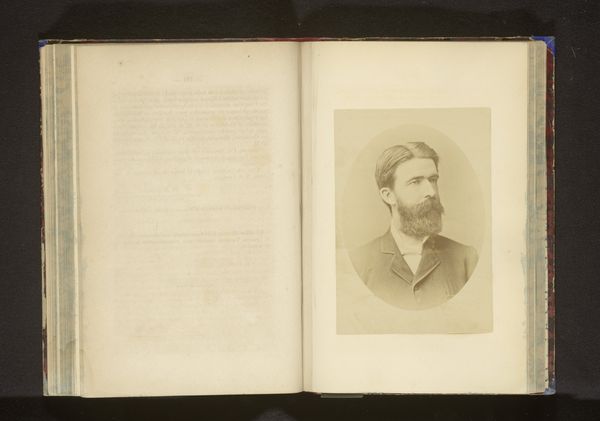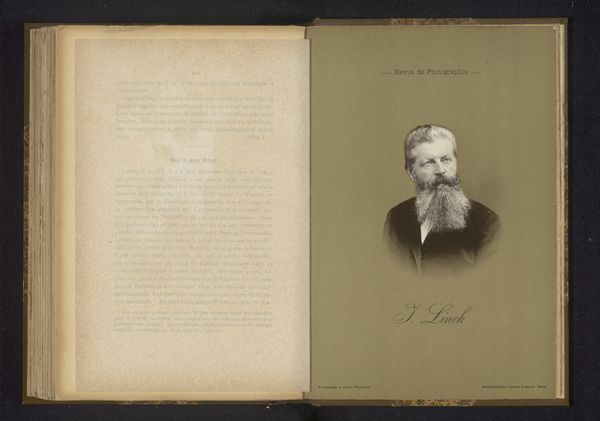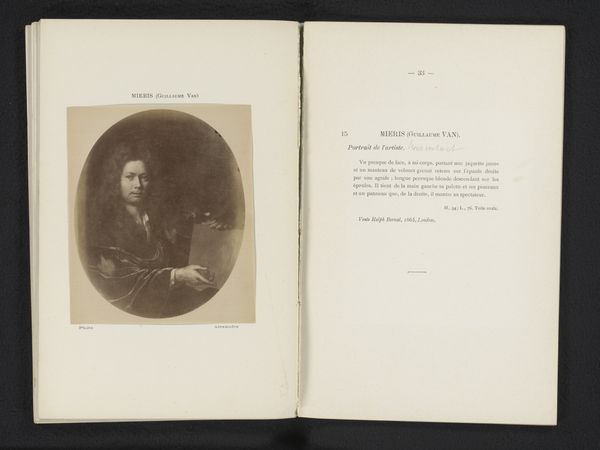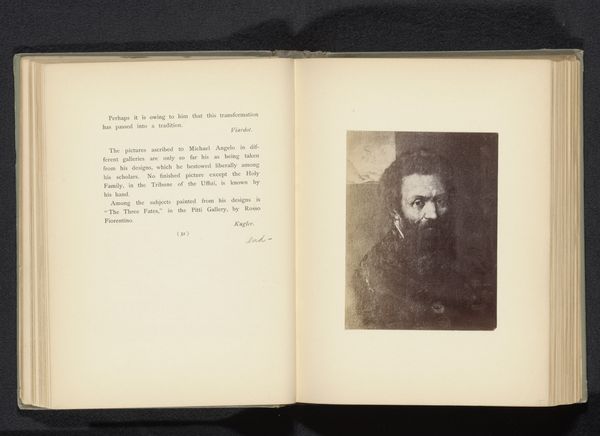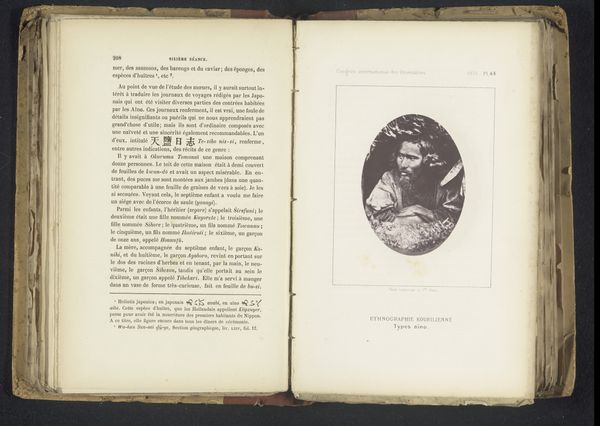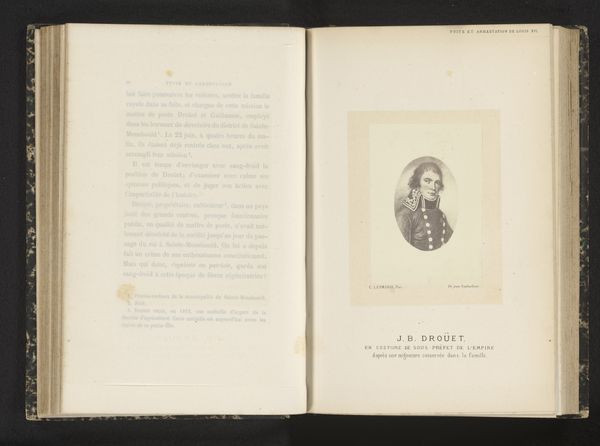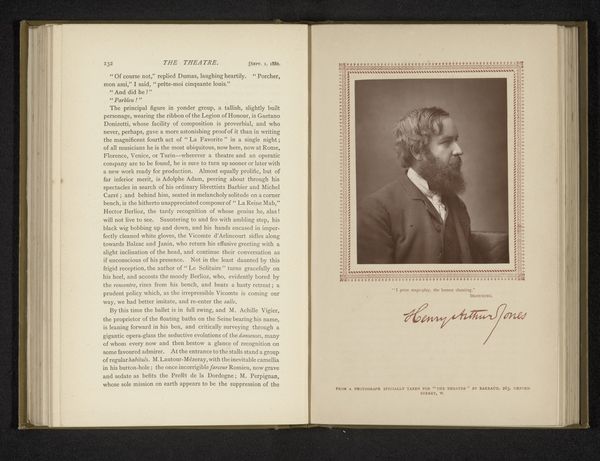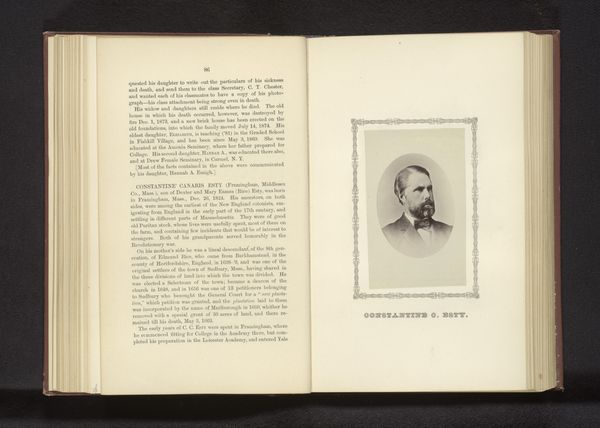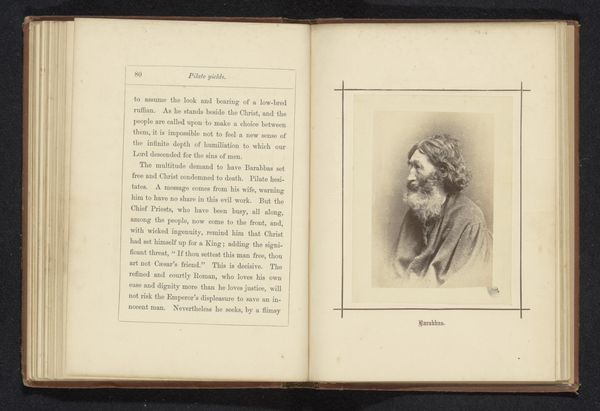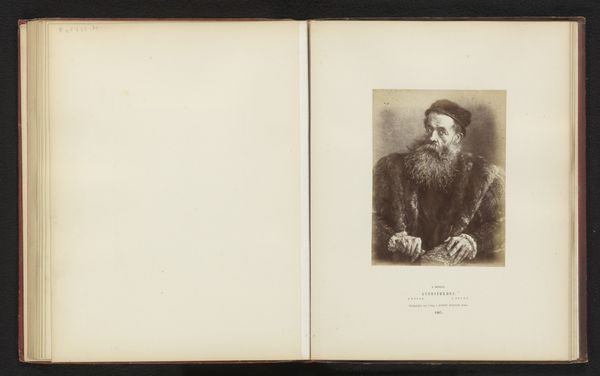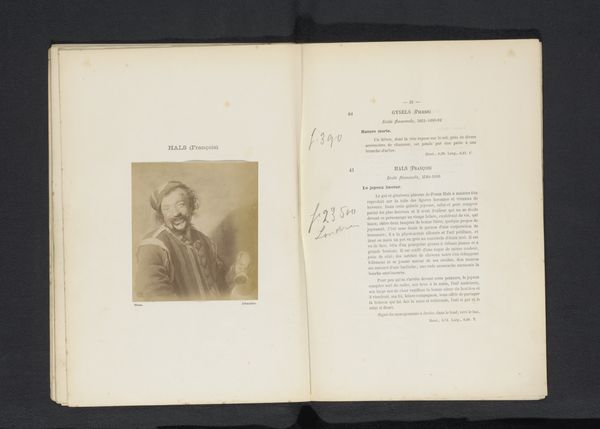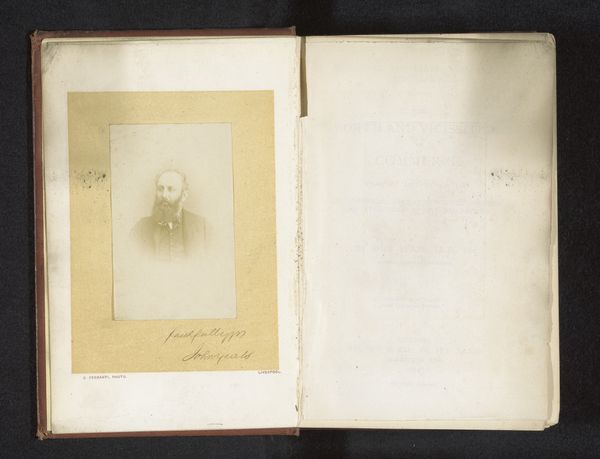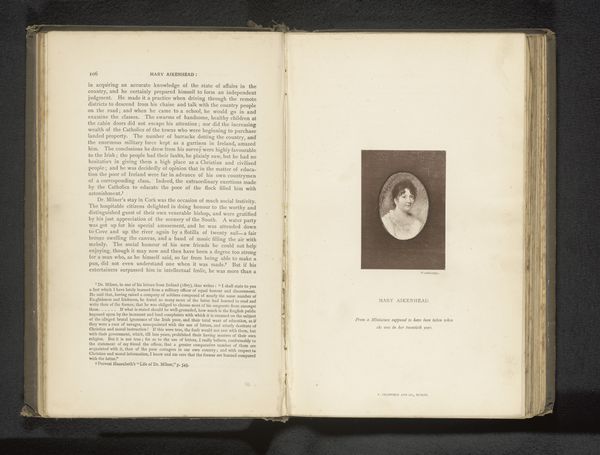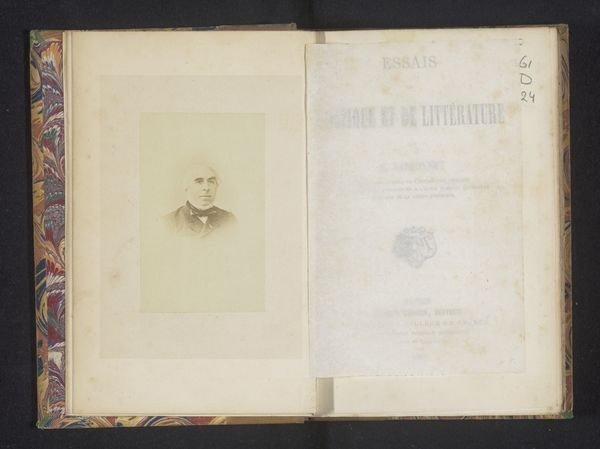
photography
#
portrait
#
self-portrait
#
ink paper printed
#
photography
Dimensions: height 112 mm, width 91 mm
Copyright: Rijks Museum: Open Domain
Editor: So, this is a photo reproduction from before 1879, thought to be a self-portrait by Ernest Hébert. It has this incredibly gentle, almost melancholic feel. I wonder, what strikes you most when you look at it? Curator: The soft focus lends itself to idealization. It's a potent visual encoding of artistic identity in the 19th century. We see echoes of Christ-like or prophetic figures in the long hair and beard. It invites a connection to enduring, almost biblical, notions of artistic genius and perhaps suffering. Editor: That's interesting; the religious reference didn’t immediately occur to me. Curator: Notice also the almost studied casualness of the attire, how it avoids aristocratic pretense, leaning into a romantic notion of the artist divorced from societal norms. Do you feel that also speaks to a specific identity? Editor: It does, now that you point it out! It seems like a conscious decision to present himself in a particular way, separating himself from a commercial status. It also makes the image more timeless. Curator: Exactly. It uses established visual language to solidify Hébert’s position within a broader cultural narrative. Think about the enduring appeal of certain image types. This taps into those collective memories. Editor: I guess it’s amazing how much an image can communicate, even without colour or grand scale, and still have a powerful connection to the symbolic, particularly as a ‘portrait of the artist as genius.’ Curator: Precisely, and our interpretations, filtered by time and cultural context, further enrich its symbolic power. It speaks volumes, even today.
Comments
No comments
Be the first to comment and join the conversation on the ultimate creative platform.
